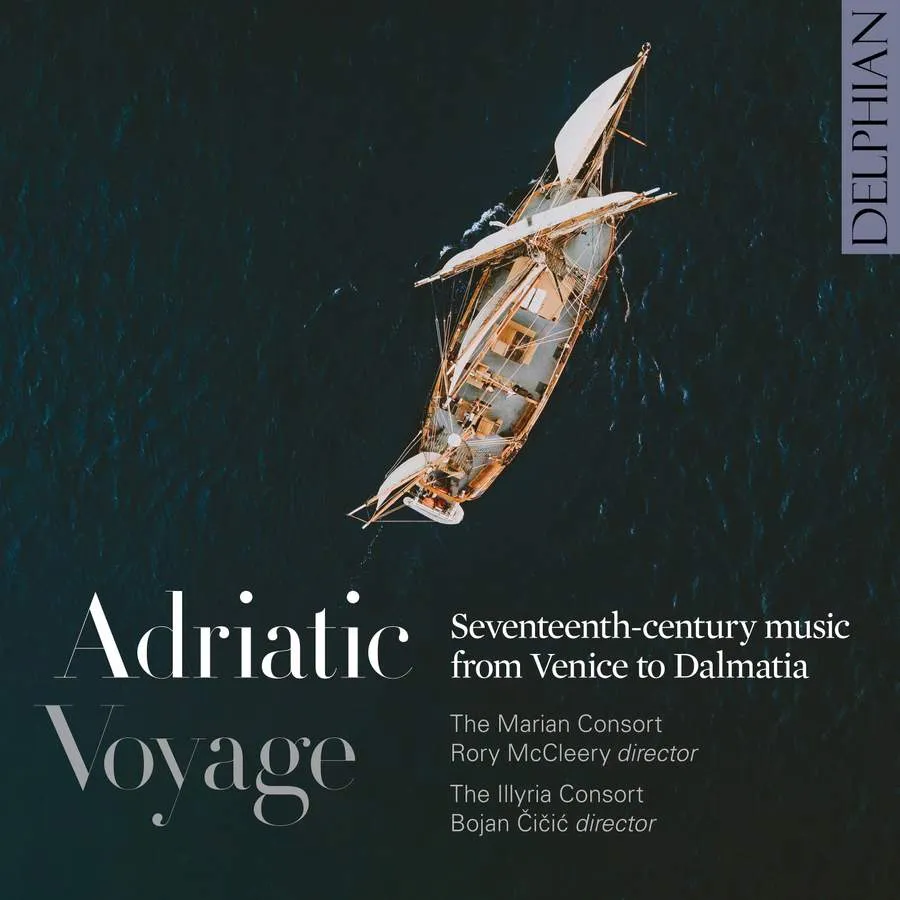
Adriatic Voyage – 17th-Century Music from Venice to Dalmatia Works by Cecchino, Jelić, Lukacˇic´, Puliti, Skjavetić, B Sorte and Usper Marian Consort/Rory McCleery (countertenor); Illyria Consort/Bojan Čičić (violin) Delphian DCD 34260 58:26 mins
While the Venetian musical hinterland of the Gabrielis or Claudio Monteverdi is relatively well mapped, what price the likes of Ivan Lukačić, Vinko Jelić, or Julije Skovelić (to give them their original names)? The five voices of the Marian Consort join forces with an Illyria Consort, fielding fruity cornettos, dulcian and sackbuts, alongside strings and continuo. They retrace a journey from Venice down the Croatian coast to Constantinople led, in 1575, by the diplomat and naval commander Giacomo Soranzo. Included, appropriately, is Bartolomeo Sorte’s madrigal in praise of Soranzo, I superbi colossi; and a resounding eight-part Battaglia for voices and instruments by Francesco Usper fires an exuberant 21-gun salute to mark the end of a voyage that had begun more serenely with his ravishing setting of the Ave Maria.
Already the bar has been set high as the instrumentalists ornament the singers’ burnished restraint with consummate skill, imagination and good taste. And it’s neatly offset by a younger Usper’s lithe Sonata a 4 – music sacred and secular illuminating the exploration of an eminently rewarding Italo-Slav rapprochement. Countertenor Rory McCleary avoids emotional overstatement in an affectionately-realised account of Puliti’s madrigal Dona ingrata; while the mellifluous tenor duetting of Jelić’s Bone Jesu is answered by the bracing vigour of bass Edmund Saddington in the same composer’s lively Exultate Deo.
Throughout, singers and instrumentalists breathe and communicate as one, their rapport unbreakable. A recording, in short, packed with fresh discoveries at every turn; and a vivid snapshot of ‘La Serenissima’s ear-expanding outreach throughout its wider domains.
Paul Riley
More reviews
Brahms: Brahms: Symphonies Nos 1-4
Somervell: Works for piano and orchestra
London Chamber Orchestra plays Ravel, Fauré, Poulenc & Ibert